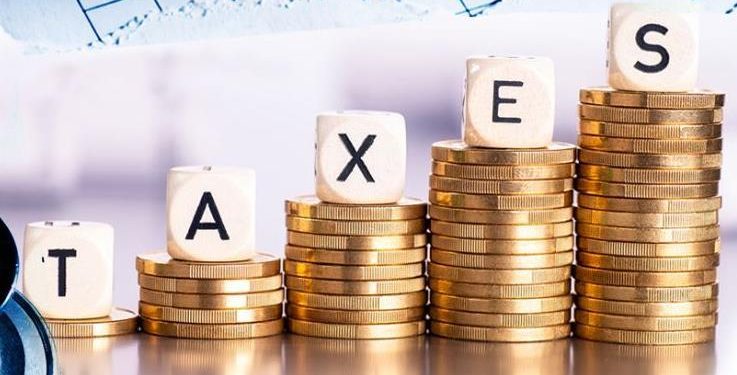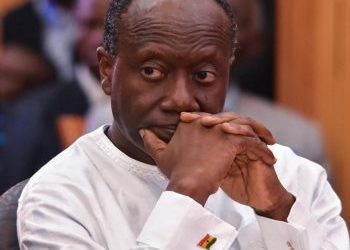The Executive Director for Revenue Mobilisation Africa and a tax expert, Geoffrey Ocansey has revealed that the government needs to have strategies in revenue mobilization and stop imposing nuisance taxes on Ghanaians, and put strict measures to block all the leakages in the revenue mobilization network and cancel the nuisance taxes bedeviling business and Ghanaians.
Mr. Ocansey in an interview on Plan B FM’s morning show NKOSUONSEM hosted by Obidehye Kofi, Mr. Ocansey said government needs to be accountable to Ghanaians for all the revenues they have mobilized and what the monies have been used for and by so doing Ghanaians will not hesitate to pay more for national development.
He added that, if taxpayers begin to realize that their taxes are being misused, it will be difficult for them to pay more taxes.
Meanwhile, Economist and Professor of Finance, Prof Godfred A. Bokpin, has expressed his view that the government’s frequent imposition of taxes represents a lazy strategy for revenue generation, ultimately causing financial strain on citizens.
He elaborated on the idea that while the need for increased revenue to support the economy is acknowledged, the unpredictability and regular introduction of new taxes are placing a burden on Ghanaians.
“This is state-sponsored robbery. This is a robbery that leaves the citizens financially repressed. It should not be accepted. I think in Ghana, we have allowed too many wrongs in this country,” he noted.
Professor Godfred A. Bokpin emphasized the significance of exploring more effective methods for revenue generation that do not jeopardize the capacity of households to fulfill their essential needs and the ability of the private sector to stay competitive.
“Nobody can tell us that the only way out is to impose more taxes and taxes, as we have done. The more we impose taxes, the real effect in scaling up or our tax revenue to GDP ratio is not seen,” he said.
“This is a small open economy. We have more than 27 different tax handles. That is not the only thing. If since 2020 the taxes we have imposed, if you estimate the compliance cost to the taxpayer, it’s huge, configuring systems virtually every six months, there is no predictability,” Prof Bokpin said.
He highlighted the need for the government to exert more effort in generating revenue for the benefit of the people it seeks to support in building the economy.
“Are we not building it (economy) for Ghanaians? Are we not building it for Ghanaian private-sector businesses? What happens if by the time we achieve macroeconomic stability, half of Ghanaians have gone into poverty and have no way of reversing that? What economy is that? At the center of it, all are people and businesses.”
“The banking sector spends millions of dollars to configure their system to allow the charging of E levy. Check the manufacturing sector, they pay so much disruption to their production line just to fix their tax stamp or something. Virtually every six months, there’s some level of disruption to planning, and to the production process. My considered view is that what Ghana is doing is not taxation,” he added.
In January 2024, the government instructed the Ghana Revenue Authority (GRA) to collaborate with two power distribution companies to transfer Value Added Tax (VAT) collected from consumers surpassing their lifeline power consumption. Finance Minister Ken Ofori-Atta, in a press release, directed the Electricity Company of Ghana (ECG) and the Northern Electricity Distribution Company (NEDCO) to coordinate with GRA to implement VAT on households exceeding the specified maximum consumption level for lifeline unit block charges, effective January 1, 2024.
However, on January 19, the Secretary-General of the Trades Union Congress (TUC), Dr. Yaw Baah, expressed opposition, stating that labor cannot accept the imposition of a 15% Value Added Tax on lifeline electricity consumers, deeming it detrimental to workers’ welfare.
Dr. Baah questioned the government’s decision to burden the already suffering workers with this new tax amid prevailing hardships.
“This country called Ghana, and all the resources we have, now the government doesn’t see anywhere else to tax; they are taxing our electricity also. Tomorrow they will tax our water, and we are not going to sit down for that to continue. That’s why I’m saying you are going to have a baptism of fire; we need to fight it until this thing is canceled,” Dr. Baah said.










Discussion about this post